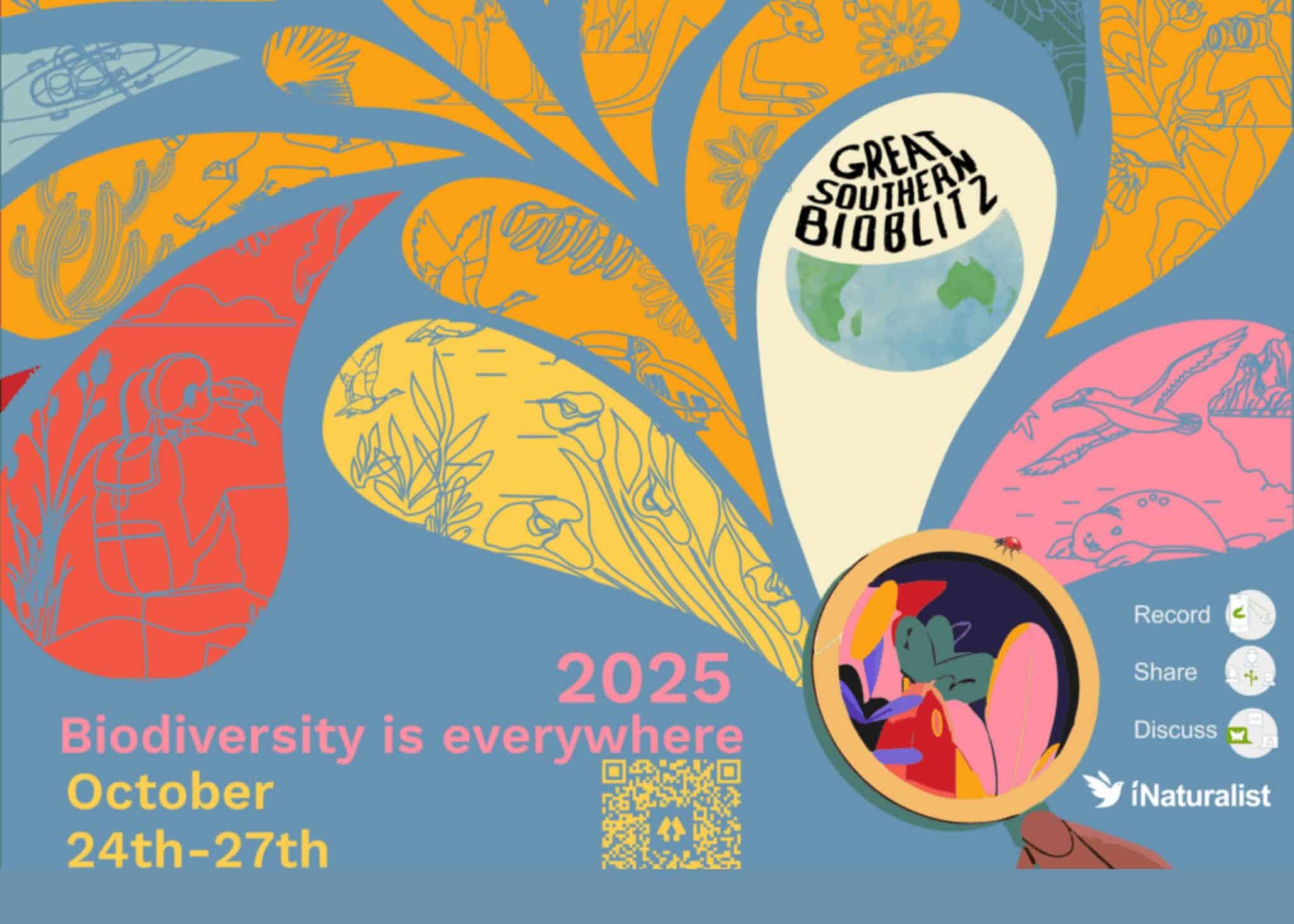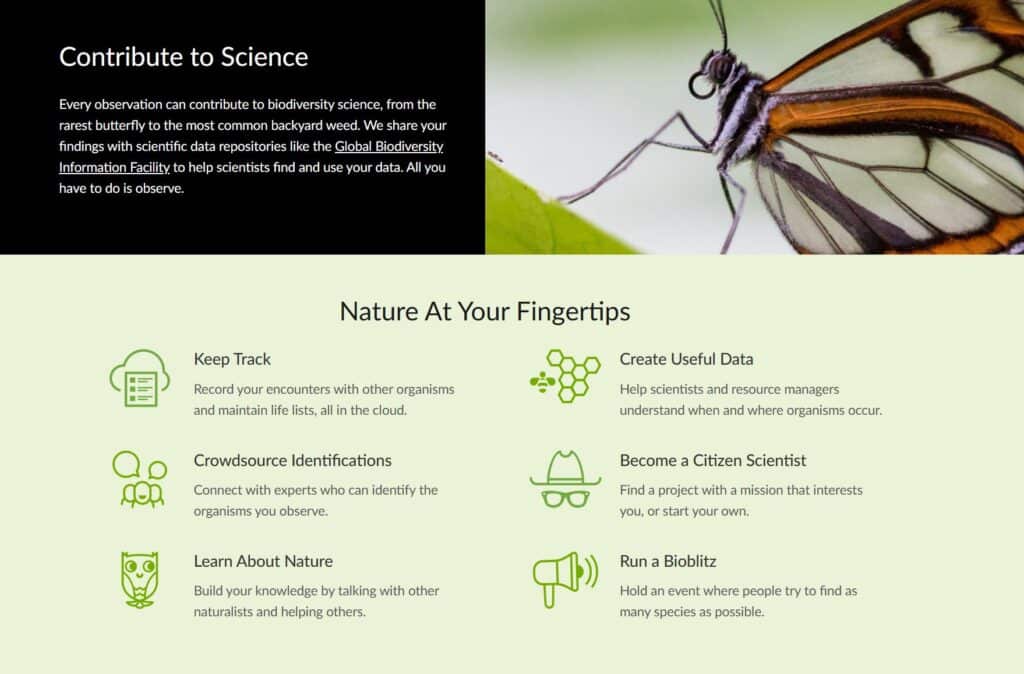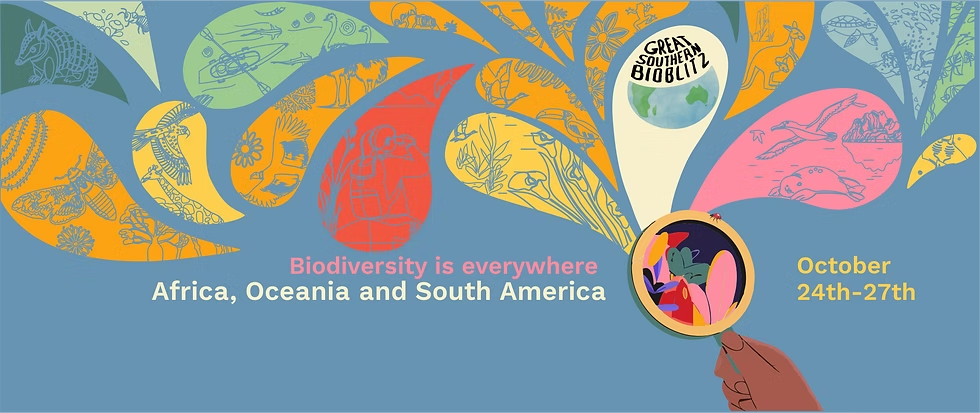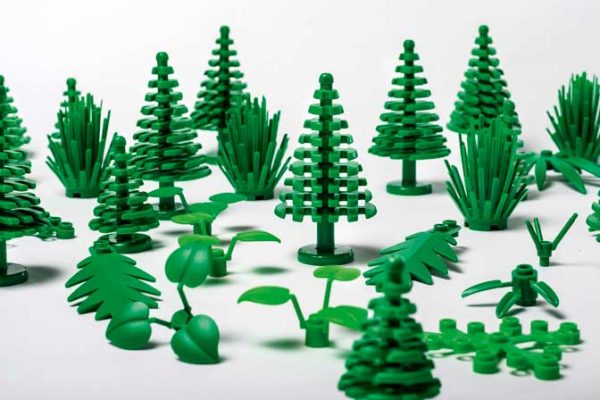If you’re the type to immediately whip out your phone when you spot an unfamiliar bird or plant, then the Great Southern BioBlitz is basically your dream weekend.
From 24–27 October 2025, people all across the Southern Hemisphere will be stepping outside to record the living world around them. With a goal to showcase our incredible biodiversity to the world and build one of the biggest snapshots of nature ever attempted.
And the best part is, anyone can take part. All you need is a bit of curiosity, your phone, and a willingness to look a little closer at what’s already around you.

What Is a BioBlitz?
A BioBlitz is a community survey of biodiversity held within a set timeframe. In this case in this case, one weekend where participants record as many wild species as possible — plants, animals, fungi and everything in between.
Every photo or sound uploaded becomes a data point, showing when and where a species was found. These records feed into platforms like the Atlas of Living Australia and the Global Biodiversity Facility, where they are used by researchers and conservationists. They help track species ranges, discover new populations and, in some cases, contribute to identifying species new to science.
The Great Southern BioBlitz is unique because it’s run by a grassroots network of volunteers and citizen scientists, regular people who love nature and want to put it on the map.

How Do I Take Part?
Participation is simple:
- Download the free iNaturalist app (or sign up online).
- Head outside between 24–27 October and photograph or record any wild organisms you come across.
- Upload your observations — the app’s AI and community will help with identification.
Not sure what you’ve found? That’s fine. Even a simple tag like “plant” or “insect” is useful and will draw in others who can help confirm the species. The magic of iNaturalist is its global community of amateur naturalists, museum curators, and even world experts who will help with IDs.
What Counts as an Observation?
An observation is any record of a wild organism: a kangaroo on a trail, fungi on a log, a gecko on your fence. Even traces like feathers, footprints or frog calls can be uploaded.
To be counted, each observation needs:
- A photo or sound file
- A date and location
- A wild species (no pets, zoo animals or council plantings)
Multiple photos are encouraged, especially for harder-to-identify species, but they should be uploaded together as one record.
Tips for a Great BioBlitz
- Take multiple photos from different angles.
- Include a scale reference for small species.
- Keep yourself safe: maintain distance from snakes, avoid risky terrain, and stick to paths.
- Observe without disturbing plants and wildlife.

Be Part of It
From bushland and beaches to balconies and backyards, every observation adds to the bigger picture. Communities across the Southern Hemisphere will be out exploring and documenting together, contributing to a collective record of spring in 2025.
Mark the date — 24–27 October — and get ready to join in. Download iNaturalist, head outside, and start recording the wild lives around you. Every photo counts, and your contribution could help shape how we understand and protect biodiversity.


